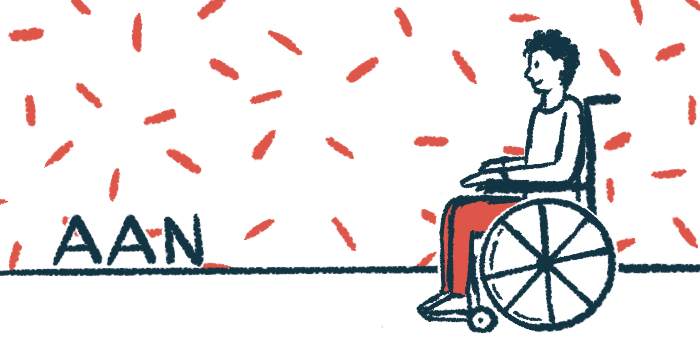AAN 2023: Radicava leads to better long-term survival in ALS
Treatment failed to slow disease progression, as assessed by ALSFRS-R
Written by |

Radicava (edaravone) significantly prolongs long-term survival for people with amyotrophic lateral sclerosis (ALS), according to an analysis of nearly 3,000 patients. It didn’t significantly slow the progression of disease symptoms, as assessed by scores on the ALS Functional Rating Scale-Revised (ALSFRS-R), however.
The results were presented at last week’s American Academy of Neurology (AAN) 2023 annual meeting in the poster, “Survival in Amyotrophic Lateral Sclerosis Patients Treated with Edaravone – a Pooled Analysis of 2845 Patients.”
Radicava is an approved treatment for ALS that’s thought to reduce oxidative stress — a type of cell damage that plays a major role in driving the disease. It’s available as an intravenous (into the vein) infusion or in a newer oral formulation called Radicava ORS. Both are sold by Mitsubishi Tanabe Pharma, which was not involved with this analysis.
Despite Radicava’s approval in the U.S., Canada, Switzerland, and a number of other countries, evidence on its effectiveness isn’t settled, leading scientists at Al-Azhar University, Egypt to analyze pooled data from 12 previously published studies to assess its effect on disease progression and survival.
The analysis included data on 2,845 patients, among whom, 1,141 were treated with Radicava, sometimes in combination with the older ALS therapy riluzole (sold as Rilutek and other formulations). The other 1,704 were given a control treatment, either a placebo or riluzole alone.
After 18 months (1.5 years) of follow-up, the chances of survival were significantly higher, by about 13%, for patients given Radicava. Later analyses also showed a significant survival benefit with Radicava — by 22% at 24 months (two years) and by 17% at 30 months (2.5 years).
At earlier timepoints (six or 12 months), survival tended to be slightly better in the Radicava group, but the difference with the control group was not statistically significant. That means it’s mathematically plausible the difference could be due to random chance.
Rates of symptom progression, as measured by the change in ALSFRS-R scores, tended to slightly favor Radicava, but weren’t significantly different from controls. Rates of side effects and other safety issues were comparable in the two groups, leading the scientists to conclude that Radicava “improves long-term survival with no effect on the ALSFRS-R score” and with a similar rate of adverse events between the groups.






